Presidential Power
This week Y13 Government and Politics students have been considering the reality behind the powers of the President – is he the most powerful man on earth, or has he only...
Filter by Category
Filter by Author

























































































































































































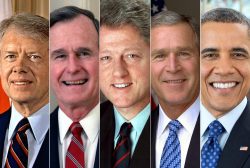
This week Y13 Government and Politics students have been considering the reality behind the powers of the President – is he the most powerful man on earth, or has he only...
Posted by Giles Monks
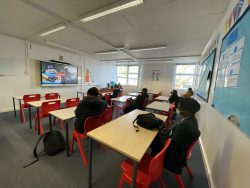
It was a privilege to join 8 Elm’s Character Development Time earlier this week and listen to our outstanding Head of Faculty for PE Mr Cartledge’s virtual assembly...
Posted by Jeremy Turner

What have you joined in with so far? If you haven’t, there is still time! Have a look at the schedule below: Ms Wright, one of our latest exciting additions to the Science...
Posted by Suresh Varsani

Even though we weren’t yet all back to school on Thursday 4th March, BMS still celebrated World Book Day in style. Students battled it out in CD groups with a book quiz and...
Posted by Danielle Bowe

Mrs Hanbury’s and Mrs Bowyers Year 9 Food groups had the pleasure of a visit from an education speaker, Lorraine Hanna from Animal Aid last week to help consolidate the topic of...
Posted by Alison Hanbury
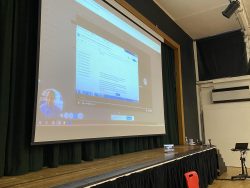
Head of IT and Computing Mr Besisira showcased best practice at the start of this week in Staff Briefing on Monday morning to launch our second Marking and Feedback Fortnight of...
Posted by Jeremy Turner

Hopefully many of you have been enjoying the introduction of a number of William Shakespeare plays each month in the BMS Newsletter. Well, things are about to get even more...
Posted by Natalie Stanton

Thirty Year 10 and 11 students were selected for this year’s Intermediate Maths Challenge. There were a fantastic 24 medal winners, including 7 golds! These 7 students are...
Posted by James Donovan
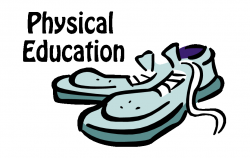
While we may traditionally think of oracy as within the classroom environment here at BMS the Physical Education (PE) and Health Faculty have been working very hard to build a...
Posted by Claire Till

Please find attached a short video and a PDF that gives a friendly overview of Virgin Media’s Apprenticeship schemes. There is also a link here if this is preferable....
Posted by Di Mcildowie
This week Y13 Government and Politics students have been considering the reality behind the powers of the President – is he the most powerful man on earth, or has he only got the power to persuade?
 Studying the Presidency reveals that due to the US Constitution all three Branches of Government – Executive (the Presidency), Legislative (Congress) and Judiciary (Supreme Court) have specific powers and responsibilities, but are also limited by ‘checks and balances’ which means no single branch can become too powerful.
Studying the Presidency reveals that due to the US Constitution all three Branches of Government – Executive (the Presidency), Legislative (Congress) and Judiciary (Supreme Court) have specific powers and responsibilities, but are also limited by ‘checks and balances’ which means no single branch can become too powerful.
For example, although the President may want to follow a specific policy eg Obama wished to introduce tighter gun control in the US. But he could not just pass a new law as he is not a lawmaker – this is for Congress to decide. However, a President is allowed to issue an Executive Order – which has legal power, but this and laws passed by Congress can be struck down by the Supreme Court if it decides it is unconstitutional. The House of Representatives in Congress also have ‘the power of the purse’ which means they control funding and budgets. If they choose to, they can refuse to agree to a budget and stop Presidential or Federal projects. In 1995 President Clinton was forced to end his intervention in Bosnia due to this and in January 2019 President Trump had to face a Government shut down after he failed to agree a budget with Democrats in the House. This meant all Federal employees were unpaid with offices closed for 34 days!
Year 13s have other examples showing Imperial – a strong President able to avoid checks and balances or an Imperilled Presidency – when a President can’t achieve their policies.
George Bush can be seen as an Imperial President as after 9/11 Congress supported him strongly due to the national crisis America faced. They passed the Patriot Act which gave new powers to detect and prevent terrorism.
Shaun Karunakaran
When a President has divided government it is difficult to get laws passed by Congress. This means the opposing party to the President controls Congress. Obama faced this when trying to pass immigration reform and gun controls, as he did not have strong backing in Congress, so his ability to persuade was limited which prevented him from putting his agenda into action.
Naiomi Djanmah
 Republican President Trump had Republican control of Congress until 2018. However he was unable to repeal Obamacare even though this had been a main election campaign goal. Fellow Republicans in the Senate refused to repeal Obamacare – amending it instead. This shows the President can’t always get what he wants – even when his party controls Congress!
Republican President Trump had Republican control of Congress until 2018. However he was unable to repeal Obamacare even though this had been a main election campaign goal. Fellow Republicans in the Senate refused to repeal Obamacare – amending it instead. This shows the President can’t always get what he wants – even when his party controls Congress!
Elisa Reci
Obama shows that a President can be Imperial in Foreign Policy but Imperilled at home. He used his powers as Commander in Chief of the Armed Forces to intervene in Libya in 2011 without telling Congress and later agreed a Presidential Agreement with Iran to control their nuclear development. This was because he knew the Senate would not agree to a Treaty with Iran over this and a President must get Treaties approved by Congress. However, at home he failed to get any gun control measures accepted and the Supreme Court overturned his immigration reforms.
Kenneth Freeman
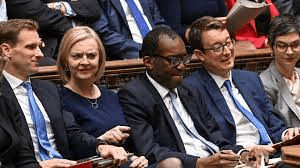
Year 12 and 13 Politics students have had a gripping time discussing the turbulent and dramatic political events of the last few weeks. At the start of the year Y12 students were...

This week in Geography the year 9 students have been creating paper mache volcanoes to help them understand the formation and features of a volcano. The students had to research...